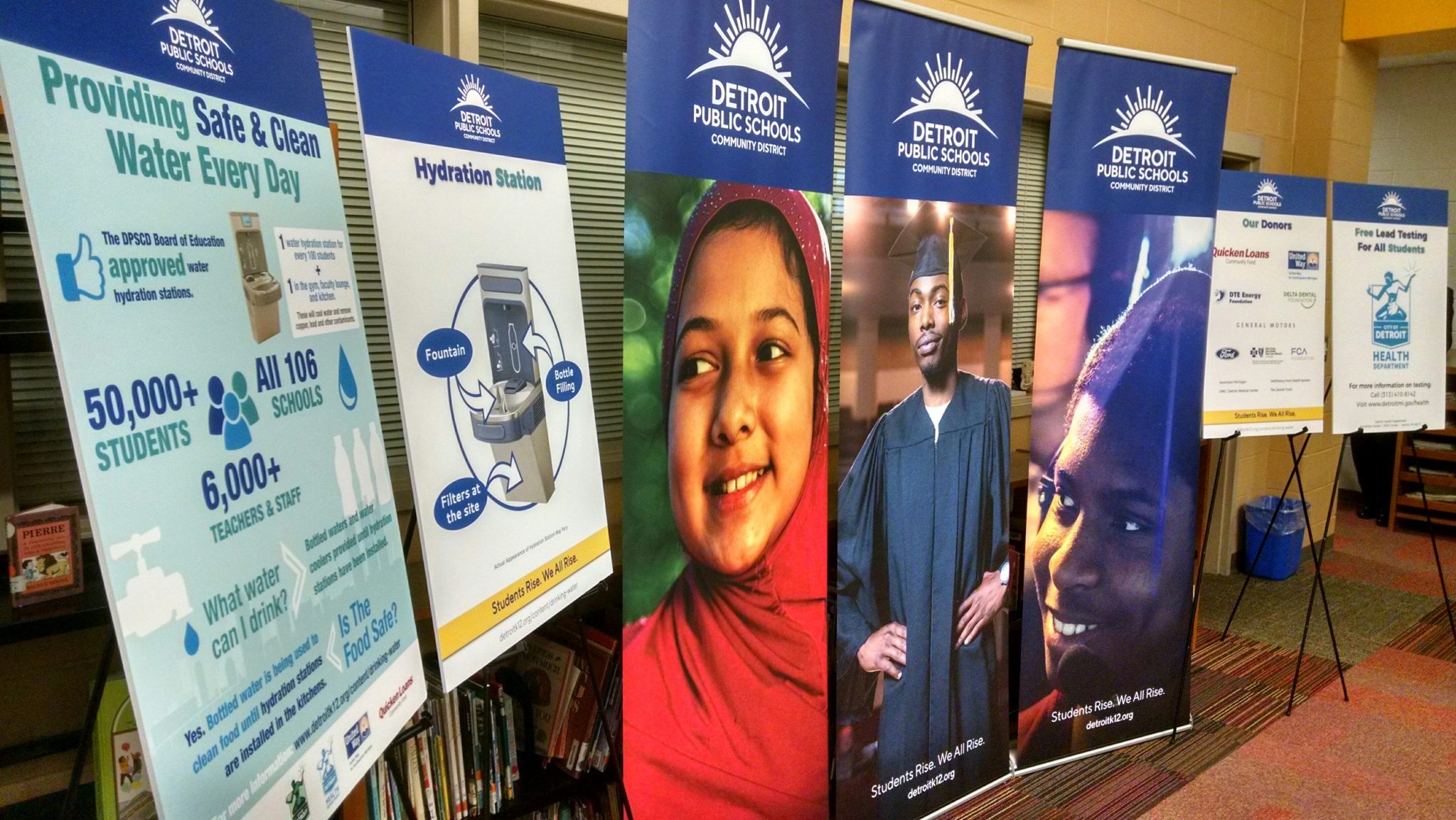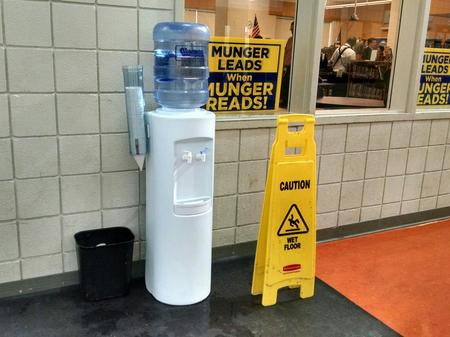Detroit Public Schools Unveils Plan to Clean Up Drinking Water
The plan involves installing more than 800 “hydration stations” across the district.


A long-term plan to clean up the drinking water at Detroit’s public schools is now in place. This afternoon district officials voted unanimously in favor of installing clean water “hydration stations” across all of its 106 campuses.
Shortly after the vote, Superintendent Dr. Nikolai Vitti formally presented the solution and detailed the new treatment systems. He says each one makes use of a built-in filter that purifies the water of contaminates, such as lead and copper.
“It is a solution that’s being used independently across the country,” says Vitti. “in airports, universities, and select districts. We are the only large, urban school district in the nation to move forward in implementing hydration stations not in a phased approach, but universally in all of our schools.”
The hydration stations are designed with a drinking fountain and bottle filling attachment. It also has the ability to measure how much water passes through the filter, so that it can be replaced every 3,000 gallons.

Vitti says that the district found contamination in its drinking water through its own testing this summer. He calls the lack of mandatory water checks for Michigan schools “unfortunate.”
“This is not something that we should be really having a conversation about,” says Vitti. “We should expect water to be clean enough to drink and it shouldn’t just be the districts’ responsibilities to find the solution. This is a national problem and should have a national solution.”
In total, Vitti says more than 800 hydration stations will be installed — a rate of about one for ever 100 students. Work to implement the systems has already begun and is expected to conclude by fall of next year.
